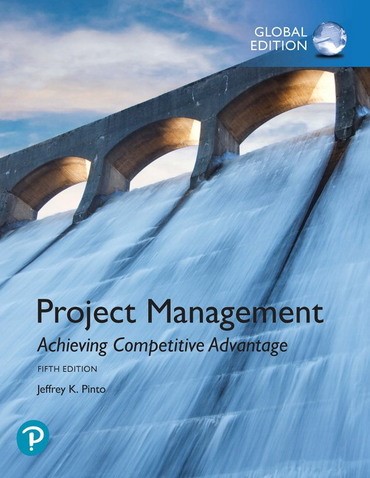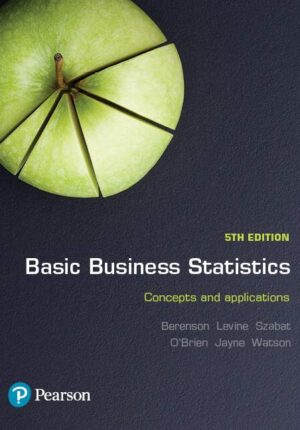1. Introduction: Why Project Management?
2. The Organizational Context: Strategy, Structure, and Culture
3. Project Selection and Portfolio Management
4. Leadership and the Project Manager
5. Scope Management
6. Project Team Building, Conflict, and Negotiation
7. Risk Management
8. Cost Estimation and Budgeting
9. Project Scheduling: Networks, Duration Estimation, and Critical Path
10. Project Scheduling: Lagging, Crashing, and Activity Networks
11. Advanced Topics in Planning and Scheduling: Agile and Critical Chain
12. Resource Management
13. Project Evaluation and Control
14. Project Closeout and Termination
Appendix A. The Cumulative Standard Normal Distribution
Appendix B. Tutorial for MS Project 2016
Appendix C. Project Plan Template
Project Management: Achieving Competitive Advantage Ebook
Each chapter features one or more Project Profiles, highlighting project management in action. Some reflect significant achievements while others detail famous (and not-so-famous) failures.
End-of-Chapter Cases illustrate project management principles. Most are based on real situations, both contemporary and classic, and include thought-provoking discussion questions.
New cases in this edition discuss London’s Crossrail, NASA’s Mars 2020 project, Samsung’s Galaxy Note 7, and more. S
hort (one-page) Research in Brief text boxes highlight the results of current research on relevant topics.
Project Managers in Practice: Short profiles of real, practicing project managers, including new profiles for this edition, give students a sense of the challenges project managers routinely face.
Integrated Project Exercises let students learn the mechanics of developing a detailed and comprehensive project plan, including scope, scheduling, risk assessment, budgeting and cost estimation, and more.
Several chapters feature sample problems or activities that require students to generate Microsoft® Project output files, such as creating an MS Project network diagram.
Internet Exercises require students to search online for key information and use web-based tools for analysing project activities and have been updated for this edition.
Integration with the PMBoK: The chapters in Project Management identify and cross-list corresponding knowledge areas and terminology from the latest edition of Project Management Body of Knowledge (PMBoK).
An expanded set of sample PMP certification exam questions at the end of most of the chapters give readers an idea of the types of questions typically asked on the exam and how those topics are treated in this book.
All project examples and screen captures have been updated from MS Project 2013 to MS Project 2016 for this edition.
Appendix C provides a template for developing a fully-evolved project execution plan that addresses the critical elements of project scope.
This text reinforces Pearson’s commitment to covering “employability skills” identified in a recent survey, including communication, critical thinking, collaboration, knowledge application and analysis, business ethics and social responsibility, IT and computer skills, and data literacy.
| Edition | 5 |
|---|---|
| Year | 2019 |
| Format | Ebook |
| Author |
Jeffrey K. Pinto |
| Publisher |
Pearson Education |













